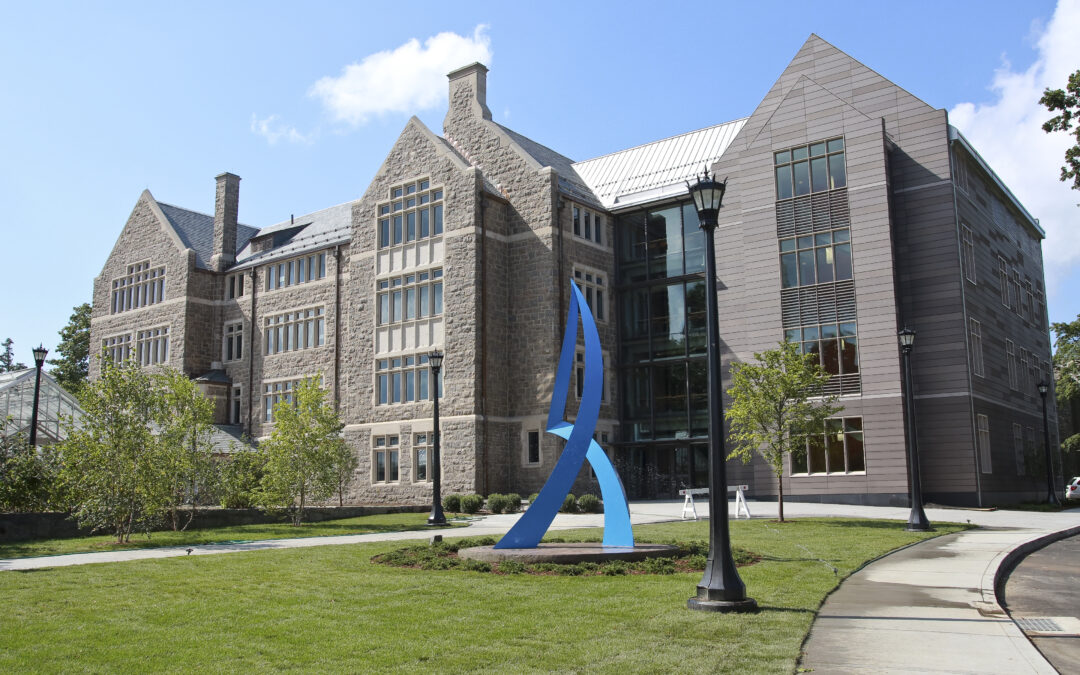FOR IMMEDIATE RELEASE
Contact: Hannah Schuster, hannah@dgardiner.com
New Report Finds Higher Education Institutions Have Many Options to Decarbonize Their Heating Systems
David Gardiner and Associates delves into alternative heating technologies for campus settings and offers insights from university sustainability officials
Washington, D.C. (June 13) — On-campus heating systems are a major source of direct greenhouse gas emissions for universities and colleges in cold weather climates. A new report from David Gardiner and Associates (DGA) tackles this issue head on by exploring numerous heating decarbonization pathways and technology options that institutions can adopt to reduce their emissions. The report draws on the experience of more than two dozen institutions that have pursued decarbonization of campus heating and features eight in-depth case studies that profile universities’ efforts to curb those emissions, often over the course of decades.
“Many higher education institutions — including their students, their staff, and their alumni — care deeply about fighting climate change,” said Anjali Patel, DGA’s Vice President for Clean Energy. “Decarbonizing campus heating, however, is one of the major challenges for institutions that want to reduce their reliance on fossil fuels, as these systems are complex and represent serious financial commitments. As DGA’s report lays out, colleges and universities have different strategies to consider; it’s a matter of finding the best options for their own unique needs and capabilities.”
While many schools have transitioned away from coal in recent years, the use of natural gas — and heating oil for backup power — remains prevalent. The report outlines seven alternatives to fossil fuel heating and profiles the emissions, financial, and reliability considerations for each. For example, biologically based fuels can often be implemented with no or limited capital investment, offering opportunities for immediate carbon reduction. Alternatively, electrification and geothermal technologies have higher upfront costs but offer greater long-term emissions reductions.
There is no one-size-fits-all solution for heating decarbonization, but DGA’s report provides a menu of options and considerations for universities to explore.
“College campuses can play a pivotal role in pioneering sustainable solutions by using their campuses as living labs for new heating technologies,” said Margaret Bounds, Director of Sustainability at Connecticut College.
The pathway to decarbonization will be unique for each and every higher education institution,” said Dan Dixon, Director of Sustainability at the University of Maine. “The complexity of large infrastructures composed of multiple technologies of varying age requires careful consideration of myriad options. This report will be an invaluable resource for institutions at any stage of their decarbonization journey.”
“As colleges and universities across the country are developing and executing plans for campus decarbonization, this report provides an excellent resource for all of us to learn from each other,” said Dennis Carlberg, Chief Sustainability Officer and Associate Vice President for Climate Action at Boston University.
One common theme shared by sustainability officials was the importance of knowledge-sharing, both between universities and with their surrounding communities.
“As stewards of both knowledge and resources, universities play a pivotal role in pioneering sustainable solutions,” said Thomas Twist, Assistant Director of Sustainability at Bates College. “This report underscores the importance of collaborative efforts and knowledge sharing in addressing the climate crisis.”
A copy of the report can be found here. The institutions featured in the case studies include:
- Bates College
- Boston University
- Connecticut College
- Denison University
- Pennsylvania State University
- The Ohio State University
- University of Iowa
- University of Maine
###
About David Gardiner and Associates:
David Gardiner and Associates (DGA) was founded in 2001 to serve as a strategic advisor to organizations and businesses seeking a sustainable future. Our firm combines expertise developing research and analysis with deep understanding of clean energy markets and policy. DGA has worked for foundations, businesses, and non-profit advocacy groups to develop strategies to identify and promote policies that will advance clean energy and a low-carbon economy.
Media Contact:
Hannah Schuster, Senior Communications Associate
